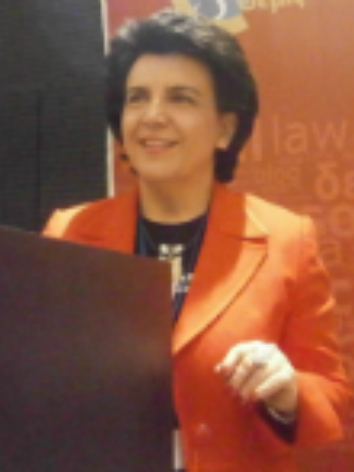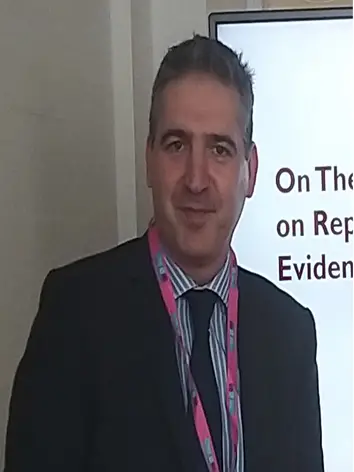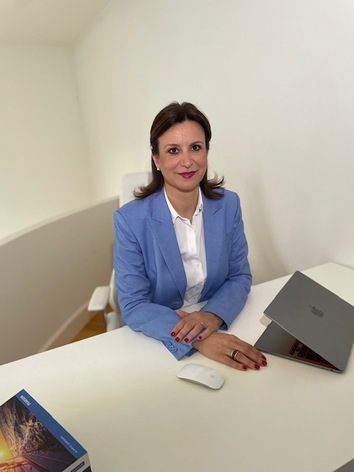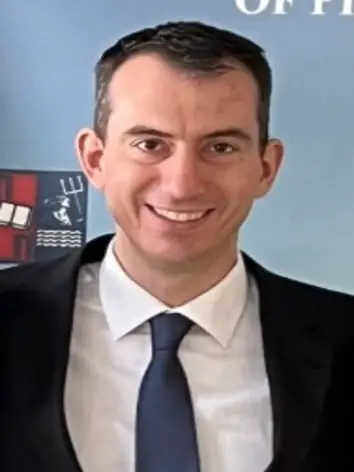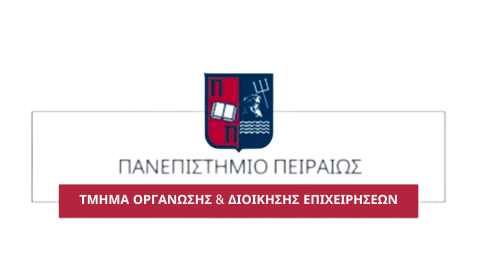Department of Business Administration
27 January 2024 2024-01-28 13:35Department of Business Administration
Contact Information:
Address: 80 Karaoli & Dimitriou Str., 185 34, Piraeus
Email: ode-secr@unipi.gr
Phone: +30 210 414-2115, -2110, -2113

About Department
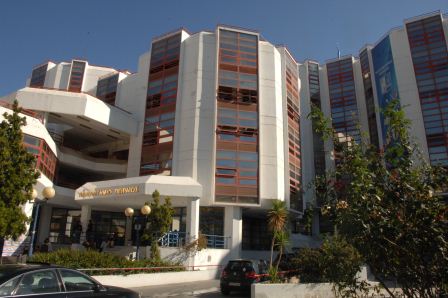
The vision of the Department of Business Administration is to establish itself as one of the leading and internationally-recognized departments of business administration, and to be at the forefront of business education in Greece, producing managers with a high level of training, innovative thinking, and business intelligence.
Mission
The mission of the Department of Business Administration is to:
- promote excellence in education and to make the best use of knowledge in order to produce management graduates with values
- engage in and support research which can meet contemporary economic, social, and business challenges and foster innovation in business administration;
- produce graduates who are capable of recognizing the challenges in the business environment and can contribute to entrepreneurial progress;
- develop managers with organizational, consulting, communication, and interpersonal skills, who are able to become mid-level and senior managers in businesses and organizations in the private and public sector;
- shape the leaders of the future, who are able to play a vital role in economic and social life at the national and international level;
- encourage professional specialization and training through brief, flexible lifelong learning education and training programmes (on either an attendance or distance learning basis); and
- cultivate an outward-looking approach and collaboration with academic, research, social, and other institutions to advance entrepreneurship and benefit society.
Strategy
Strategy of the Department of Business Administration
All members of the Department adhere to the enduring values that the Department has adopted and promotes and make an essential contribution to the effective achievement of its objectives. The strategic pillars and individual objectives of the Department are closely aligned with the strategy of the University. These are:
- To create, disseminate, and apply vital knowledge and continuously adapt the curriculum for all programmes in light of academic developments and the needs of society, while adhering to the principles of research ethics. In particular, the Department aims:
- to produce graduates with values, who will help to overcome contemporary research, social, and economic challenges;
- to promote and disseminate its work (educational, research, cultural, and social) to the academic community and society;
- to develop and expand the academic fields and areas covered by the Department;
- to ensure that the fields of study of the Department are up to date and in line with new research trends and academic developments;
- to maintain and enhance the Department’s competitive advantage in developing applied knowledge in the fields of business administration, management, marketing, production, accounting and finance;
- to attract and retain high-calibre academics with an international reputation; and
- to provide incentives to recognize and promote excellence.
- To provide a high standard of education and training to students. In particular, the Department aims:
- to incorporate innovation in the education process;
- to encourage students to adopt an analytical, synthetic, critical, and creative way of thinking in all subjects;
- to enhance students’ active participation in the education process;
- to use modern methods, techniques, and tools, with an emphasis on ICT and open educational resources, in order to improve teaching and facilitate access to knowledge;
- to strengthen the role of the Department’s Internal Evaluation Committee to ensure the quality of its undergraduate, postgraduate and doctoral programmes;
- to develop and put in place a system to modernize and upgrade the curriculum for all programmes in accordance with the latest educational approaches and international standards; and
- to develop foreign-language educational activities (undergraduate, postgraduate, lifelong learning, and summer school programmes) in fields that will attract international students.
- To create a favourable environment to encourage and support staff and students. In particular, the Department aims:
- to support academic and research staff;
- to support administrative staff;
- to shape a culture that fosters continuous improvement of knowledge and skills among members of the Department and develop ways to achieve this;
- to strengthen the faculty mentorship programme;
- to attract funding in order to be able to provide scholarships and financial support to students;
- to strengthen the role of internal evaluation, involving all parties and using the results as a means of improving the academic standing of the Department.
- To promote research and innovation, helping to strengthen the link between applied research and industry. In particular, the Department aims:
- to expand the Department’s research laboratories and attract new research staff;
- cultivate academic research and increase the Department’s research performance;
- support new researchers, doctoral candidates, and teaching staff to produce research of a high standard;
- to advance departmental and interdepartmental research collaboration;
- to promote research collaboration with respected universities and research centres;
- to foster collaboration between the Department’s researchers and public and private enterprises and strengthen the relationship between research and industry; and
- to disseminate the research achievements of the Department.
- To cultivate an outward-looking and international approach, extending and strengthening international networks and strategic alliances with academic and other bodies. In particular, the Department aims:
- to attract high-calibre students;
- to promote strategic alliances with academic departments of international standing;
- to encourage student mobility through Erasmus+ programmes;
- to develop foreign-language courses for EU Erasmus+ students; and
- to build a dynamic community of alumni with close links to the Department.
- To improve and extend infrastructure and services to ensure that the Department has the necessary logistical resources and can function effectively and efficiently. In particular, the Department aims:
- to accelerate its digital transformation in order to develop more effective and efficient services; and
- to use additional resources to ensure the Department’s strong position through collaborations, initiatives, and educational and research programmes.
- To strengthen ties with the local community and extend the social impact of the Department’s activities. In particular, the Department aims:
- to develop alliances with local and national bodies to transfer knowledge, thus helping to overcome social and economic challenges;
- to build ‘entrepreneurial bridges’ with the local business and financial community; and
- to create and implement a powerful communication strategy.
Quality Assurance
“The Department of Business Administration of the University of Piraeus recognizes quality as the principle means of achieving high standards in education and research. The Department’s quality culture is shown by the commitment of its academic, research and administrative staff, as well as its students, to this goal. The members of the Department work and collaborate in accordance with the values and objectives of the Department, embrace its vision and mission, adopt common policies and practices, and participate in continuous improvement processes.”
Department of Business Administration Declaration of Quality
The Department of Business Administration is committed to ensuring quality in all its academic, educational, and research activities, offering up-to-date and competitive programmes of study, focusing on innovation, and using applied research to its advantage. Moreover, the Department is aware of the importance of quality as a means of promoting equal access to knowledge, an outward-looking approach, international recognition, and collaboration with industry.
Department of Business Administration Quality Policy
The Department has implemented a Quality Policy which supports its academic identity, is aligned with the orientation of its programmes of study, promotes its mission, and supports the fulfilment of its strategic objectives. Within this framework it applies quality processes to ensure the continuous improvement of the courses offered, research activities, and administrative services, with the aim of raising its academic and general standards.
The aim of the Quality Policy is to fulfil the Department’s mission and strategy. The processes that ensure excellence in education and high-level research are central to this policy.
The Department of Business Administration is fully committed to ensuring that its objectives are fulfilled. All members of the Department adhere to the enduring values that the Department has adopted and promotes and make an essential contribution to the effective achievement of its objectives. The quality culture that has developed within this framework is shown by the commitment and collaboration of its academic, research, and administrative staff, as well as its students, to this goal.
The Department’s Quality Policy:
- is based on international quality standards;
- is aligned with the University’s Quality Policy and reflects the strategic goals of the Department on the academic, research, and administrative level;
- is accepted and supported by all members of the academic community;
- is specified and monitored through the setting of specific goals.
The aim of the Department’s Quality Policy is to ensure the high standard and continuous improvement of its education and research, in accordance with international best practice.
In order to implement and apply this policy, the Department of Business Administration is committed to processes which will ensure:
- courses with appropriate structure and organization;
- learning outcomes and qualifications which are in accordance with the European and National Qualifications Framework for higher education;
- continuous improvement of the education process and teaching effectiveness;
- teaching staff with appropriate qualifications;
- the encouragement of quality and quantity in the research of academic staff;
- a link between teaching and research;
- a demand in the job market for the qualifications earned by its graduates;
- the quality of support services, for example, administrative and academic services (libraries, laboratories and so on) and student welfare services.
The members of the Department’s Internal Evaluation Committee, in conjunction with the University Quality Assurance Unit (MODIP), ensure that the Department’s Quality Policy is implemented through an annual review and internal audit.
The members of the Internal Evaluation Committee help to:
- monitor the implementation of quality objectives;
- align the Quality Policy with the wider strategic objectives of both the Department and the University, where necessary;
- make decisions in order to continuously improve the quality of the Department’s teaching, research, and administration;
- take corrective action in case of divergence from these objectives;
- conduct the internal evaluation;
- collaborate effectively with the Quality Assurance Unit of the University of Piraeus.
Through the aforementioned process the Department aims to respond on a continuous basis both to the international challenge of excellence in education and to the expectations of its students, alumni, and teaching, research, and administrative staff.
The Quality Policy is published on the Department’s website and electronic and printed versions are distributed to all parties (teaching and research staff, students of all programmes, administrative and technical staff, external partners, recipients of scholarships, and professional, research, academic and social institutions which are allied with the University). By communicating the Quality Policy in this way, the Department aims to secure the support and the active involvement of all its members in the prescribed processes.
.
The evaluation of the Curriculum by the undergraduate students aims at the continuous improvement of the curriculum and the teaching work of the Department and the University in general. The evaluation is conducted by filling in a special questionnaire designed for this purpose. The assessment questionnaire for each course is completed by the students in the last weeks of each semester.
View the aggregated statistical results of the evaluation for the academic years 2015-2016, 2016-2017 and 2017-2018, by clicking here (text in Greek).
In order to improve the quality of the curriculum, a study for the evaluation of the experience of the graduates of the Department of Business Administration of the University of Piraeus was conducted in the academic year 2018-2019.
To view the analysis of the data collected in this study please press here (text in Greek).
Administrative Bodies
The Chair of the Department is elected by an electoral body every two years in accordance with current legislation.
For 2023–2025 Dimitrios Georgakellos is Chair of the Department and Panagiotis Artikis is Vice Chair of the Department.
General Assembly
The General Assembly of the Department consists of:
a. all faculty members of the Department;
b. student representatives (equal to 50% of faculty members);
c. postgraduate representatives (equal to 15% of the faculty members);
d. representatives of Laboratory Teaching Staff (EDIP), Special Technical Laboratory Staff (ETEP) and non-doctoral assistants, research associates and assistants (equal to 5% of faculty members).
Committees
Each year the Department Chair nominates faculty members for the various committees which handle matters concerning the Department, in order to support him in making recommendations to the General Assembly. These committees include:
- Education Policy Committee
- Committee for Student Affairs
The Department Secretary is Kyriaki Stavrianidou.
Department Chair's Message
Undergraduate Studies
In light of the overall goal of the Department, the curriculum aims to:
- provide knowledge of the principles, theories, and problems in the management of economic units, within the context of a broader university education;
- introduce the methods and techniques that are used in order to make correct management decisions;
- teach the art of effective human resource management for the achievement of business goals;
- train students in the methodology of academic study, research, and analysis of complex management problems;
- highlight the social dimension of each management issue and decision; and
- prepare students who intend to pursue postgraduate study in Greece or abroad.
The Bachelor of Business Administration is a four-year programme. Each year is divided into two academic semesters: fall and spring. There are eight semesters in total.
The course comprises 36 core courses and approximately 49 electives, from which students are required to select 10. A foreign language course (English) is also compulsory and is completed in the first four semesters.
Students are required to complete a total of fifty (50) courses in order to graduate (36 compulsory courses [C], 4 foreign language courses [FL], and 10 electives [E]). Students are required to complete the English course; however, the grade for this course does not count towards the final degree grade.
Students are eligible to graduate when they have successfully completed the required and elective courses specified by the curriculum and have earned a total of 240 credits (ECTS).
Electives from the curriculum may be taken from the fifth semester. In order to complete their programme of study, students must be examined in:
- Three (3) core options
- From the three (3) concentrations:
- Management and Human Resources
- Accounting and Finance
- Marketing and Production Management
Students must select four (4) courses from one and only one concentration. In addition, they are required to:
- choose three (3) free electives;
- attend and successfully complete the course English as a Foreign Language in the first four (4) semesters.
- During their studies they may choose a maximum of two (2) RESEARCH PROJECT electives (one [1] in the winter semester and one [1] in the spring semester), which may replace a course from either the student’s chosen concentration or the student’s free electives.
It should be noted that the module IT Applications II requires students to complete 40 hours of compulsory workshops. These workshops are graded. If a student earns a passing grade for the workshop component, this grade is added to the overall grade earned for the module. A grade for IT Applications II cannot be assigned if the 40 hours have not been completed.
Students may improve their grade (reassessment) in the following ways:
- Students in the fifth or sixth semester may resit two (2) required courses from the previous four or five semesters.
- Students in the seventh or eighth semester may resit a total of six (6) courses (required and elective) if they have not previously exercised their right to resit examinations.
- Students may resit examinations for prerequisite and elective courses in all examination sessions.
To see full curriculum press here.
This page is currenlty unavailable in English.
To view the Student Handbook for 2019-2020 press here
This page is currenlty unavailable in English.
- For the Academic Calendar of 2019-2020 press here.
(Last updated: 01/06/2020)
This page is currenlty unavailable in English.
For the Undergraduate Studies Regulation press here.
Since 2010 academic textbooks are provided through Eudoxus, an integrated electronic textbook management service. The aim of the service is to provide all the necessary textbooks to students enrolled in Greek Universities and Technological Educational Institutes (TEI). Each semester students request the books they require for each course.
To access the EUDOXOS Service click here.
PERSONAL STUDENT ACCOUNT
Students who have registered at the University may collect their personal username and password from the University Secretariat. These give access both to the personal student account and to the electronic services provided by the University and the Hellenic Ministry of Education. These codes are strictly confidential. In the event of loss, they may be reissued by the Secretariat.
ELECTRONIC SECRETARIAT – STUDENT INFORMATION SYSTEM FOR ACADEMIC AFFAIRS
The web application of the Electronic Secretariat can be accessed at students.unipi.gr.
This web application allows students to:
- find information about the courses offered in the curriculum, instructors, suggested reading etc;
- register for courses for each semester;
- access grades for courses in which they have been examined; and
- receive a confirmation of studies instantly in electronic format.
The student username and password provide access to this web application.
ACADEMIC IDENTIFICATION CARD, STUDENT PASS
All registered students are required to have an academic identification card. To obtain the identification card, students must log in to academicid.minedu.gov.gr using their student username and password and submit the relevant online application. The academic identification card also serves as a student pass which can be used to travel on public transport.
Students who have been admitted to Greek Universities and Technological Educational Institutes are eligible to obtain a student identification card following registration for the first year of their studies. In order to receive this card, first-year students must first register with the secretariat of the school to which they have been admitted. The new identification card resembles a credit card and has improved security features to prevent counterfeiting.
UNIVERSITY TEXTBOOKS
Academic textbooks are distributed via the EUDOXUS service provided by the Ministry of Education at eudoxus.gr. This service enables students to apply for the textbooks they require for each semester and find the relevant information.
Students log in to the EUDOXUS system using their student username and password.
WIRELESS INTERNET – Wi-Fi
All teaching areas in the university have free wireless internet coverage (Wi-Fi). The network name is unipi. Students can connect to this network from their laptop or mobile telephone without using a password.
VIRTUAL PRIVATE NETWORK – VPN
The University’s VPN connection allows students to access the electronic services of the University from a remote location or network, for example, from home. Through this service it is possible, for example, to access the content of the academic books, journals, and databases available in the library when working outside the university. More details about this service can be found at: www.unipi.gr/unipi/el/hu-sundesh-vpn.html.
SOFTWARE FOR EDUCATIONAL USE
Univerisity students, depending on the Department they are attending, are provided free access to Microsoft software via the Microsoft Imagine service (formerly Dreamspark/MSDNAA). The Microsoft Imagine service is provided by Microsoft and gives students and faculty of Piraeus University the ability to download and use Microsoft software free of charge. Software distributed through Imagine, regardless of subscription level, does not include Microsoft Office. The service is available in two levels, Standard and Premium. The Imagine Standard service is accessible to all University students and is provided by the central service. Standard Edition has a limited list of Microsoft software that does not include Desktop versions of Windows, Microsoft Visio, or Microsoft Project. Access to the service is through their student username and password at Microsoft Imagine Standard και Microsoft Imagine Premium (Department of Business Administration).
Moreover, students of all grades can use their student username and password to gain access to the Microsoft Office 365 Education Plus software at https://delos365.grnet.gr. Detailed instructions regarding the activation of this service are provided in the Office 365 Account Activation Guide.
LIBRARY (Website: www.lib.unipi.gr)
The University of Piraeus library is for use by faculty members, researchers, and students. Its mission is to support learning and research.
The library is housed in the central building of the University in the lower basement. The library entrance is at the central circular staircase at the centre of the ground floor. Disabled access is via the lift on the left side of the building.
The library consists of three main areas:
- The Reception Area, where the issue desk, the closed collection, rare collections and computers for searching the catalogue and information sources are located.
- The Bookstack, where students will find the entire printed collection, photocopying machine, and reader computers.
- The Reading Room, which houses dictionaries, displays of the most recent issues of journals, and other reference material.
The opening hours have been extended from 8am to 8pm on all working days, to meet the needs of the members of the University.
Services
General information: Information regarding the library and its resources, for example, borrowing regulations, photocopies, use of audio-visual material, location of records etc, is available at the reception desk. Nine leaflets are available to provide information on these subjects.
Specialized information: The library provides online subscription and open access databases by subject.
Specialized research queries can be submitted by email, telephone, or in person. These are handled by librarians from the relevant department.
Borrowing: Each member of the University is a registered user of the library and can borrow library materials. A renewals and reservation system for borrowed items is also in place. Returned items are re-issued on a priority basis.
New acquisitions are made following recommendations for the expansion of its collection or through interlibrary loans from Greek or international partner libraries.
User training: Library personnel offer new students and all interested parties support and information regarding the use of the library, its catalogues, and the services and electronic information sources it provides.
STUDENT WELFARE OFFICE
The Student Welfare Office of the University of Piraeus provides students with information on the following topics:
- Meals
- Accommodation
- Housing allowance
- Healthcare coverage
- European Insurance Card
For more information click here.
CAREER OFFICE
The University of Piraeus Career Office was established in 1997 with funding from the Operational Programme for Education and Initial Vocational Training (OPEIVT) as part of the 2nd Community Support Framework (CSF). It continues to operate under the National Strategic Reference Framework (NSRF). Its primary aim is to support students and graduates in various ways in order to facilitate their integration into the job market and help them embark on a successful career. It promotes the development of dynamic alliances and serves the needs of four main groups: students and alumni of the University; teaching and research staff; businesses and public and private sector bodies and organizations; and the secondary education sector.
The Career Office provides the following services:
- Offers information, guidance, and active support to students and alumni, to help them to prepare for and find employment in Greece and abroad, select the most suitable postgraduate course, and take the first steps in their professional life;
- Allows businesses to meet their human resource requirements by providing them with employees who have the appropriate training; and
- Organizes events to inform pupils in secondary education and prospective students about the University of Piraeus and the professional opportunities available to them.
For more information click here.
UNIVERSITY OF PIRAEUS COUNSELLING CENTRE
The University of Piraeus Counselling Centre was founded in 1995 and serves as a place for Meeting, Support, Communication and Intervention. The members of the counselling team are aware of the particular difficulties that students may be facing and handle matters that are important for everyone relating to:
- Active learning
- Adjusting successfully to new needs and demands
- Social skills, relationships and family
- Dealing with stressful situations
- Health and prevention
- Creative forms of expression and entertainment
- Developing essential skills for success
Intervention and efforts to overcome any challenges that arise can take the form of individual and group psychological counselling, or seminars which focus on helping students to adapt to their academic setting.
For more information click here.
Student mobility takes place only through the bilateral agreements which are signed by faculty members of the University of Piraeus and apply for the academic year in question. One or more faculty members (Academic Coordinators) from each department are responsible for the bilateral agreements with European universities. The students who will participate in the Erasmus+ programme are selected by the Academic Coordinator in February and March for the whole of the following academic year (winter and spring semester). Students can find the names of the Academic Coordinators for their department and the partner institutions in the relevant booklet which is posted by the Department of International and Public Relations of the University of Piraeus.
In addition to the general entry requirements, the Academic Coordinators who are responsible for the bilateral agreements may specify further conditions, which must be published in the call for applications. Before selecting the host university, students must first submit an application to the Academic Coordinator and find information about the university in question. Guidelines regarding the registration process, curriculum, duration of semesters, availability of accommodation and other practical issues that are essential for students who wish to study abroad are available on the websites of all universities under the headings ‘International Relations’ and ‘Erasmus+ programme’. Students can also consult the information files of partner universities which are kept in the University’s Department of International and Public Relations during opening hours (Tuesday to Thursday, 10am – 2pm).
Moreover, the Erasmus+ programme offers students and recent graduates of the University of Piraeus the opportunity to complete a placement in universities, businesses and organizations in the countries that participate in the programme, in order to gain work experience in an international environment.
To visit the website of the Department of International and Public Relations and learn more about the Erasmus+ programme click here.
The Department of Business Administration of the University of Piraeus aims to offer students professional experience in addition to a strong theoretical foundation. To this end, students have the opportunity to opt for a Student Internship in place of two of their free electives (3+3 ECTS), in a programme that was established as part of the undergraduate curriculum over 15 years ago.
The Student Internship allows third- and fourth-year students to undertake a placement as part of their studies in order to gain work experience.
Only students who are funded by National Strategic Reference Framework (NSRF) are eligible for the Student Internship. Priority is given to students in the eighth semester and, depending on availability, to students in the sixth semester. If the applications from students in the eighth and sixth semester outnumber the places offered by NSRF, students will be selected in accordance with the following criteria:
- number of courses in which students have been successfully examined, up to and including the September examination session of the preceding academic year (accounting for 70% of the total score);
- foreign language proficiency (accounting for 10% of the total score); and
- average grade, up to and including the September examination session of the preceding academic year (accounting for 20% of the total score).
Students are ranked according to their total scores and a list of successful and reserve candidates is drawn up. Students have the right to raise an objection within three days of publication of the results. After three days the results are finalized and the list of participants is approved by the General Assembly of the Department and published, taking data protection into account.
Student internships take place in July and August at host organizations which are partners of the University of Piraeus. If a student who has been accepted for the internship programme opts to work for an employer of his/her choice, he/she is required to notify the faculty member in charge of the internship programme. On receiving approval, the student is subsequently required to forward the partnership proposal to the employer.
The Student Internship is funded by NSRF. As a result, students and host organizations are required to register (within the specified deadlines) with both ATLAS, the centralized internship support system, and E-Praktiki, the internship information system. Host organizations post internships and the Internship Office of the Department of Business Administration matches students to the available positions.
On completion of a minimum of two months’ employment, students submit to the Department’s Internship Office a record of attendance and an evaluation form which has been completed and signed by their immediate supervisor or the person responsible for the internship programme at the host organization. The faculty member in charge of internships subsequently uses these documents to enter the student’s grade for the internship. Students may only undertake one internship during the course of their studies. Students select the Student Internship as an elective in the spring semester of the academic year in which the internship will take place.
The Student Internship is part of the NSRF 2014–2020 operational programme ‘Human Resources Development, Education and Lifelong Learning’ and is co-funded by the European Social Fund.
Scientific Supervisors for the Department of Business Administration
Assοciate Professor M. Tsogas – Associate Professor E. Didaskalou
mtsogas@unipi.gr, +30 210 414 2211 – edidask@unipi.gr, +30 210 414 2254
Contact Information:
Internship Office
praktiki.unipi.gr | phone: +30 2104142640 | email: praktiki-ode@unipi.gr
The Academic Advisors for 2022-2023 are the following:
- Academic Advisors for each year of study:
- 1st Year (1st-2nd Semester): Associate Professor E. Didaskalou
- 2nd Year (3rd-4th Semester): Associate Professor V. Zisis
- 3rd Year (5th-6th Semester): Associate Professor E. Kopanaki
- 4th Year (7th-8th Semester): Associate Professor G. Papanastasopoulos
- Academic Advisors for each Concentration:
- Finance and Accounting: Professor P. Artikis
- Marketing and Production: Associate Professor M. Tsogas
- Management and Human Resources: Associate Professor F. Ntalianis
Postgraduate Studies
The Department offers postgraduate programmes which aim to offer high-level training to management executives and consultants so that they are able to handle the complex and dynamic international business environment effectively, contributing to business processes that enhance competition/competitiveness.
The following postgraduate programmes were re-established in 2018–2019:
- Master in Business Administration (M.B.A.).
(Re-establishment and regulations: Gov. Gazette Β 3035_27.07.2018 and B 3859_6.09.2018) - Master in Business Administration – Total Quality Management International (M.B.A.-Total Quality Management International).
(Re-establishment and regulations: Gov. Gazette Β 3149_01.08.2018 and B 4004_17.09.2018) - Master in Business Administration – Tourism Management (M.B.A. – Tourism Management).
(Re-establishment and regulations: Gov. Gazette Β 3149_01.08.2018 and B 4224_27.09.2018) - Executive Master in Business Administration (E-M.Β.Α.).
(Re-establishment and regulations: Gov. Gazette Β 2857_17.07.2018 and B 3915_10.09.2018) - MSc in Accounting and Control of Businesses and Public Sector.
(Re-establishment and regulations: Gov. Gazette Β 3183_02.08.2018 and B 3860_6.09.2018)
The Departments of Business Administration, Economics, and International and European Studies of the School of Economics, Business and International Studies reestablished the following interdepartmental postgraduate programme:
- MSc in Law and Economics.
(Re-establishment and regulations: Gov. Gazette Β 2836_16.07.2018 and B 3952_12.09.2018)
The aim of this programme is to produce a new generation of graduates with knowledge and expertise both in Law and Economic Science, and in modern businesses and organizations. The combination of knowledge of the key areas and a critical approach to vital interdisciplinary topics creates value, enhancing intellectual capital on the social and professional level.
- Master of Arts in Local and Regional Development and Local Goverment.
(Re-establishment and regulations: Gov. Gazette Β 5002_31.21.2019 and B 5032_13.11.2019)
To access the Digital Library of Postgraduate Thesis and Dissertations click here.
PhD Studies
One of the key objectives of the department is to discover new knowledge through research to ensure that teaching is continually updated and strengthened.
Within a rapidly changing world, new knowledge that results from sustained research efforts and research activity is essential. To this end, the Department of Business Administration welcomes doctoral candidates in all areas associated with the fields of study of the department.
Research at the univervity is driven by academic freedom and is conducted in accordance with the conscience of each faculty member and academic research ethics. The completion of a doctoral thesis is a process that entails a multifaceted interpersonal relationship between the doctoral candidate and supervisor. For this reason, the mutual consensus of both is essential for a fruitful collaboration of this kind.
A doctoral thesis is characterized by a high level of originality, recognized by the international academic community. The aim of the Department’s doctoral programme is to produce high-calibre research and to offer comprhensive training to new researchers.
Doctoral theses are completed in line with current legislation.
This page is currenlty unavailable in English.
ADAM G. | E. KOPANAKI | M. SFAKIANAKIS N. GEORGOPOULOS |
ATHANASIADOU TH. | P. ARTIKIS | N. PHILIPPAS A.FOUSTERIS |
ASIMAKOPOULOS K. | E. DIDASKALOU | L. XYTIRIS N. GEORGOPOULOS |
ARSENOU E. | V. ZISIS | J. SORROS G. PAPANASTASOPOULOS |
ANDRONIS S. | N. PHILIPPAS | P. ARTIKIS N. TSAGKARAKIS |
VASILATOS A. | G. PAPANASTASOPOULOS | V. ZISIS J. SORROS |
VASILOPOULOU A. | G. PAPANASTASOPOULOS | D. THOMAKOS J. SORROS |
MASSIMO V. | M. SFAKIANAKIS | P. MARAVELAKIS G. PAPANASTASOPOULOS |
GEORGOUDAKI E. | E. DIDASKALOU | N. GEORGOPOULOS D. GEORGAKELLOS |
GIANNAKOPOULOS N. | M. TSOGKAS | A. KOUREMENOS E. KOPANAKI |
GKIOLIA E. | F. NTALIANIS | L. XYTIRIS A. SMIRNIOTOU |
KAMINI D. | J. THANOPOULOS | V. PEKKA-OIKONOMOU E. NINA-PAZARZI |
CAMBIS A. | M. SFAKIANAKIS | D. GEORGAKELLOS N. GEORGOPOULOS |
KANDA D. | N. PHILIPPAS | N. GEORGOPOULOS D. GEORGAKELLOS |
KARAGOUNIS D. | A. SINANIOTI | K. DELOUCA V. PEKKA-OIKONOMOU |
KARAMINAS A. | S. BERSIMIS | M. SFAKIANAKIS D. GEORGAKELLOS |
KARVOUNIDI M. | A. FOUSTERIS | E. DIDASKALOU N. GEORGOPOULOS |
KLADA N. | N. GEORGOPOULOS | D. GEORGAKELLOS E. KOPANAKI |
KAMPOROZOU A. | M. SFAKIANAKIS | P. MARAVELAKIS F. NTALIANIS |
KOTIOS D. | M. SFAKIANAKIS | N. GEORGOPOULOS P. MARAVELAKIS |
KOTSOMITI T. | E. DIDASKALOU | D. GEORGAKELLOS A. FOUSTERIS |
KOULENTIANOU M. | V. PEKKA-OIKONOMOU | D. GEORGAKELLOS N. GEORGOPOULOS |
KRITIKOS E. | P. ARTIKIS | M. SFAKIANAKIS G. PAPANASTASOPOULOS |
LIDAKI K. | N. GEORGOPOULOS | P. ARTIKIS E. KOPANAKI |
MALLIARI N. | D. CAMBIS | M. SIGALA N. GEORGOPOULOS |
MPARTSIOKA Z. | S. BERSIMIS | M. SFAKIANAKIS P. MARAVELAKIS |
MPOUNTOULIS C. | S. BERSIMIS | M. SFAKIANAKIS D. GEORGAKELLOS |
NIKA E. | D. GEORGAKELLOS | M. SFAKIANAKIS G. PAPANASTASOPOULOS |
PANAGIOTIDOU E. | P. CHOUNTALAS | A. LAGODIMOS D. GEORGAKELLOS |
PAPAGEORGIOU A. | V. ZISIS | J. SORROS G. PAPANASTASOPOULOS |
PAPAKONSTANTINOU A. | M. TSOGKAS | D. GEORGAKELLOS D. CAMBIS |
PARTHENOPOULOU N. | D. GEORGAKELLOS | N. GEORGOPOULOS S. BERSIMIS |
PLEMMENOS I. | A. KOUREMENOS | P. MALLARIS G. AVLONITIS M. TSOGKAS |
PETROPOULOU E. L. | A. SINANIOTI | |
RAPTAKI E. | M. TSOGKAS | D. CAMBIS EM. PLAKOGIANNAKI |
RAUTOPOULOS G. | V. ZISIS | J. SORROS P. ARTIKIS |
ROGKAKOS I. | V. ZISIS | J. SORROS G. PAPANASTASOPOULOS |
ROKAKIS N. | S. BERSIMIS | P. MARAVELAKIS E. KOPANAKI |
SALTAGIANNI N. | P. CHOUNTALAS | A. LAGODIMOS D. GEORGAKELLOS |
SABRAKOS A. | P. MARAVELAKIS | M. SFAKIANAKIS A. LAGODIMOS |
SKARLATOS K. | S. BERSIMIS | P. MARAVELAKIS P. OIKONOMOU |
SPIROPOULOS CH. | S. BERSIMIS | M. SFAKIANAKIS P. MARAVELAKIS |
STATHOPOULOU A. | N. PHILIPPAS | P. ARTIKIS N. TSAGKARAKIS |
STAMELOU E. | A LAGODIMOS | I. THANOPOULOS G. BOHORIS |
STAMOULAKI A. | D. GEORGAKELLOS | E. DIDASKALOU A. FOUSTERIS |
STROUMBOULIS A. | E. KOPANAKI | D. GEORGAKELLOS N. GEORGOPOULOS |
SOTIROPOULOS G. | E. DIDASKALOU | D. GEORGAKELLOS S. BERSIMIS |
TSAKIRI E. | E. DIDASKALOU | N. GEORGOPOULOS D. GEORGAKELLOS |
TSITSIRI P. | P. ARTIKIS | N. TSAGKARAKIS E. KOPANAKI |
TSOUDIS D. | P. ARTIKIS | N. PHILIPPAS D. GEORGAKELLOS |
FLOROU K. | P. ARTIKIS | N. TSAGKARAKIS N. PHILIPPAS |
XAREMIS A. | V. PEKKA-OIKONOMOU | N. GEORGOPOOULOS N. PHILIPPAS |
XATZIGEORGIOU S. | D. GEORGAKELLOS | E. DIDASKALOU P. CHOUNTALAS |
XRISIKOPOULOS S. | P. CHOUNTALAS | A. LAGODIMOS D. GEORGAKELLOS |
This page is currenlty unavailable in English.
Research Laboratories
Director: Professor Dimitrios Geogakellos from 26/04/23 to 26/04/26.
Director: Professor Petros Maravelakis from 26/04/23 to 26/04/26.
Director: Associate Professor Markos-Marios Tsogas from 26/04/23 to 26/04/26.
Director: Associate Professor Vasileios Zisis from 26/04/23 to 26/04/26.
Director: Professor Michael Sfakianakis from 26/04/23 to 26/04/26.
Director: Associate Professor Dimitrios Cambis from 26/04/23 to 26/04/26.
Director: Professor Nikolaos Georgopoulos from 26/04/23 to 26/04/26.
Director: Professor Nikolaos Philippas from 26/04/23 to 26/04/26.
Research Publications
TOTAL CITATIONS: 12.205
- Artikis, P.G., Diamantopoulou, L., Papanastasopoulos, G.A. (2022). New insights on the asset growth anomaly: evidence from Europe*, European Journal of Finance, 28(18), pp. 1867–1891.
- Artikis, P.G., Kampouris, C.G. (2022). Is intrinsic value priced in the cross section of stock returns?, Cogent Economics and Finance, 10(1), 2098607.
- Artikis, P.G., Diamantopoulou, L., Papanastasopoulos, G.A., Sorros, J.N. (2022). Asset growth and stock returns in european equity markets: Implications of investment and accounting distortions, Journal of Corporate Finance, 73, 102193.
- Tampakoudis, I., Nerantzidis, M., Artikis, P., Kiosses, N. (2022). The effect of board size on shareholder value: Evidence from bank mergers and acquisitions, European Management Journal, 40(6), pp. 883–894.
- Koutoupis, A.G., Belesis, N.D., Kampouris, C.G. (2022). Did COVID-19 Affect the Financial Performance and Risk of International Shipping Companies?, International Journal of Applied Economics, Finance and Accounting, 13(2), pp..
- Koutoupis, A.G., Belesis, N.D., Kampouris, C.G. (2022). TAX AND COVID-19 PANDEMIC EFFECTS ON THE FINANCIAL PERFORMANCE AND RISK OF THE HOTEL INDUSTRY, Corporate and Business Strategy Review, 3(2), pp. 125–137.
- Sorros, J., Lois, P., Charitou, M., Karagiorgos, A.T., Belesis, N. (2022). Improving competitiveness in education institutes – ABC’s neglected potential, Competitiveness Review, 32(3), pp. 302–325.
- Belesis, N.D., Kampouris, C.G., Karagiorgos, A.Th. (2022). The Effect of COVID-19 on the Value Relevance of European Firms’ Financial Statements, International Journal of Applied Economics, Finance and Accounting, 14(1), pp. 91–911.
- Skamnia, E., Economou, P., Bersimis, S., …Politis, A., Alexopoulos, P. (2022). Hot spot identification method based on Andrews curves: an application on the COVID-19 crisis effects on caregiver distress in neurocognitive disorder, Journal of Applied Statistics.
- Bersimis, S., Chakraborti, S., Rakitzis, A.C. (2022). Pattern detection in phase I monitoring using runs-based tests, Communications in Statistics: Simulation and Computation.
- Bersimis, S., Sachlas, A. (2022). Surveilling public health through statistical process monitoring: A literature review and a unified framework, Communications in Statistics Case Studies Data Analysis and Applications, 8(3), pp. 515–543.
- Bersimis, S., Sgora, A., Psarakis, S. (2022). A robust meta-method for interpreting the out-of-control signal of multivariate control charts using artificial neural networks, Quality and Reliability Engineering International, 38(1), pp. 30–63.
- Bouranta, N., Psomas, E., Antony, J. (2022). Human factors involved in lean management: a systematic literature review, Total Quality Management and Business Excellence, 33(9-10), pp. 1113–1145.
- Dimitrantzou, C., Psomas, E., Bouranta, N., Kafetzopoulos, D. (2022). The role of organisational culture in total quality management adoption and cost of quality, Total Quality Management and Business Excellence, 33(15-16), pp. 1718–1736.
- Bouranta, N., Psomas, E., Casolani, N., Jaca, C., Liberatore, L. (2022). Consumers’ food safety perceptions in three Mediterranean countries, New Medit, 2022(4).
- Psomas, E., Keramida, E., Bouranta, N. (2022). Practical implications of Lean, Six Sigma and Lean Six Sigma in the public administration sector: a systematic literature review, International Journal of Lean Six Sigma, 13(6), pp. 1277–1307.
- Kitsou, S.P., Koutsoukis, N.S., Chountalas, P., Rachaniotis, N.P. (2022). International Passenger Traffic at the Hellenic Airports: Impact of the COVID-19 Pandemic and Mid-Term Forecasting, Aerospace, 9(3), 143.
- Pappa, E., Didaskalou, E., Kontogeorgis, G., Filos, I. (2022). STRATEGIC MANAGEMENT OF TOURISM SUSTAINABILITY THROUGH THE GREEK STAKEHOLDERS’ PERSPECTIVE ON THE IMPACTS OF EVENTS: THE CASE OF PATRAS’ CARNIVAL, Greece, WIT Transactions on Ecology and the Environment, 256(2022), pp. 85–95.
- Papadakis, M.-N., Kopanaki, E. (2022). Innovative Maritime Operations Management Using Blockchain Technology & Standardization, Journal of ICT Standardization, 10(4), pp. 469–508.
- Kopanaki, E. (2022). Conceptualizing Supply Chain Resilience: The Role of Complex IT Infrastructures, Systems, 10(2), 35.
- Stroumpoulis, A., Kopanaki, E. (2022). Theoretical Perspectives on Sustainable Supply Chain Management and Digital Transformation: A Literature Review and a Conceptual Framework, Sustainability (Switzerland), 14(8), 4862.
- Stroumpoulis, A., Kopanaki, E., Varelas, S. (2022). ROLE OF ARTIFICIAL INTELLIGENCE AND BIG DATA ANALYTICS IN SMART TOURISM: A RESOURCE-BASED VIEW APPROACH, WIT Transactions on Ecology and the Environment, 256(2022), pp. 99–108.
- Maragkos, K.E., Maravelakis, P.E. (2022). Extracting Primary Emotions and Topics from the Al-Hayat Media Centre Magazine Publications, Using Topic Modelling and Lexicon-Based Approaches, Social Science Computer Review.
- Perdikis, T., Psarakis, S., Castagliola, P., …Maravelakis, P.E., Rakitzis, A.C. (2022). An EWMA sign chart for dispersion with exact run length properties, Journal of Statistical Computation and Simulation.
- Maravelakis, P.E., Rakitzis, A.C., Castagliola, P. (2022). Exponentially weighed moving average charts for monitoring zero-inflated proportions with applications in health care, Statistical Methods in Medical Research, 31(5), pp. 959–977.
- Tsionas, M.G., Philippas, D., Philippas, N. (2022). Multivariate stochastic volatility for herding detection: Evidence from the energy sector, Energy Economics, 109, 105964.
- Lykoudi, D.M., Zouni, G., Tsogas, M.M. (2022). Self-love emotion as a novel type of love for tourism destinations, Tourism Geographies, 24(2-3), pp. 390–411.
- Kyriakou, M., Tsogas, M. (2022). Revisiting the Neglected Role of Targeting Strategy in Firm’s Performance: An Abstract, Developments in Marketing Science: Proceedings of the Academy of Marketing Science, pp. 595–596.
- Kyriakou, M., Tsogas, M. (2022). International Expansion Alternatives: A Modeling Approach, Developments in Marketing Science: Proceedings of the Academy of Marketing Science, pp. 337–348.
- Chatzopoulou, E., Tsogas, M.M., Kyriakou, M. (2022). Retail atmospherics in times of disruption: a PLS modeling approach of the role of emotions in a pharmacy environment, International Journal of Retail and Distribution Management, 50(2), pp. 158–182.
- Artikis, P.G., Diamantopoulou, L., Papanastasopoulos, G.A. (2021). New insights on the asset growth anomaly: evidence from Europe, European Journal of Finance.
- Molaris, V.A., Triantafyllopoulos, K., Papadakis, G., Economou, P., Bersimis, S. (2021). The Effect of COVID-19 on minor dry bulk shipping: A Bayesian time series and a neural networks approach, Communications in Statistics Case Studies Data Analysis and Applications, 7(4), pp. 624–638.
- Karvela, P., Kopanaki, E., Georgopoulos, N. (2021). Challenges and opportunities of cloud adoption in supply chain management: A swot analysis model, Journal of System and Management Sciences, 11(3), pp. 215–234.
- Varelas, S., Karvela, P., Georgopoulos, N. (2021). The impact of information technology and sustainable strategies in hotel branding, evidence from the greek environment, Sustainability (Switzerland).
- Sorros, J., Lois, P., Charitou, M., Karagiorgos, A.T., Belesis, N. (2021). Improving competitiveness in education institutes – ABC’s neglected potential, Competitiveness Review.
- Zisis, V. (2021). Start-up Firms and Discretion Over Deferment of Disclosure: An ex Ante and an ex Post Perspective, Accounting in Europe, 18(3), pp. 295–324.
- Zisis, V., Naoum, V.-C. (2021). Sticky cost theory and firm’s evolution, Applied Economics Letters.
- Wu, S., Castagliola, P., Rakitzis, A.C., Maravelakis, P.E. (2021). Design of attribute EWMA type control charts with reliable run length performance, Communications in Statistics: Simulation and Computation.
- Perdikis, T., Psarakis, S., Castagliola, P., Rakitzis, A.C., Maravelakis, P.E. (2021). The EWMA sign chart revisited: performance and alternatives without and with ties, Journal of Applied Statistics.
- Perdikis, T., Psarakis, S., Castagliola, P., Maravelakis, P.E. (2021). An EWMA signed ranks control chart with reliable run length performances, Quality and Reliability Engineering International, 37(3), pp. 1266–1284.
- Alevizakos, V., Koukouvinos, C., Maravelakis, P.E. (2021). The use of control charts to monitor air plane accidents of the hellenic air force, Revstat Statistical Journal, 19(2), pp. 187–206.
- Maragos, E.K., Maravelakis, P.E., Linardis, A.I. (2021). A DEA evaluation of the successful implementation of HEALTH2020 policies, Socio-Economic Planning Sciences, 76, 100968.
- Costopoulou, C., Ntaliani, M., Ntalianis, F. (2021). Evolution of e-participation in Greek local government, Information Polity, 26(3), pp. 311–325.
- Ntalianis, F., Dyer, L. (2021). Balanced psychological contracts in the small business: The five factor model at work, Personality and Individual Differences, 178, 110819.
- Naoum, V.-C., Papanastasopoulos, G.A. (2021). The implications of cash flows for future earnings and stock returns within profit and loss firms, International Journal of Finance and Economics, 26(2), pp. 2927–2945.
- Chatzopoulou, E., Tsogas, M.M., Kyriakou, M. (2021). Retail atmospherics in times of disruption: a PLS modeling approach of the role of emotions in a pharmacy environment, International Journal of Retail and Distribution Management.
- Stroumpoulis, A., Kopanaki, E., Karaganis, G. (2021). Examining the relationship between information systems, sustainable scm, and competitive advantage, Sustainability (Switzerland), 13(21), 11715.
- Albayrak, T., Caber, M., Sigala, M. (2021). A quality measurement proposal for corporate social network sites: the case of hotel Facebook page, Current Issues in Tourism, 24(20), pp. 2955–2970.
- Sigala, M., Steriopoulos, E. (2021). Does emotional engagement matter in dark tourism? Implications drawn from a reflective approach, Journal of Heritage Tourism, 16(4), pp. 412–432.
- Bagherzadeh, S., Shokouhyar, S., Jahani, H., Sigala, M. (2021). A generalizable sentiment analysis method for creating a hotel dictionary: using big data on TripAdvisor hotel reviews, Journal of Hospitality and Tourism Technology, 12(2), pp. 210–238.
- Sarwar, A., Muhammad, L., Sigala, M. (2021). Unraveling the complex nexus of punitive supervision and deviant work behaviors: findings and implications from hospitality employees in Pakistan, International Journal of Contemporary Hospitality Management, 33(5), pp. 1437–1460,
- Kim, J., Park, J., Kim, S., Lee, D.C., Sigala, M. (2021). COVID-19 Restrictions and Variety Seeking in Travel Choices and Actions: The Moderating Effects of Previous Experience and Crowding, Journal of Travel Research.
- Sigala, M., Nilsson, E. (2021). Innovating the Restaurant Industry: The Gamification of Business Models and Customer Experiences, Gamification for Tourism, pp. 100–117.
- Sigala, M., Kumar, S., Donthu, N., Sureka, R., Joshi, Y. (2021). A bibliometric overview of the Journal of Hospitality and Tourism Management: Research contributions and influence, Journal of Hospitality and Tourism Management, 47, pp. 273–288.
- Sigala, M. (2021). Rethinking of Tourism and Hospitality Education When Nothing Is Normal: Restart, Recover, or Rebuild, Journal of Hospitality and Tourism Research, 45(5), pp. 920–923.
- Ye, E.M., Du, J.T., Hansen, P., … Sigala, M., Huang, S.S. (2021). Understanding roles in collaborative information behaviour: a case of Chinese group travelling, Information Processing and Management, 58(4), 102581.
- Koo, C., Xiang, Z., Gretzel, U., Sigala, M. (2021). Artificial intelligence (AI) and robotics in travel, hospitality and leisure, Electronic Markets, 31(3), pp. 473–476.
- Utkarsh, Sigala, M. (2021). A bibliometric review of research on COVID-19 and tourism: Reflections for moving forward, Tourism Management Perspectives, 40, 100912.
- Junaid, I., Sigala, M., Banchit, A. (2021). Implementing community-based tourism (CBT): Lessons learnt and implications by involving students in a CBT project in Laelae Island, Indonesia, Journal of Hospitality, Leisure, Sport and Tourism Education, 29, 100295.
- Bouranta, N., Psomas, E., Antony, J. (2021). Human factors involved in lean management: a systematic literature review, Total Quality Management and Business Excellence.
- Dimitrantzou, C., Psomas, E., Bouranta, N., Kafetzopoulos, D. (2021). The role of organisational culture in total quality management adoption and cost of quality, Total Quality Management and Business Excellence.
- Belesis, N., Sorros, J., Karagiorgos, A. (2020). Financial Market Data Versus Accounting Data: Which Better Explains Stock Returns?, International Advances in Economic Research, 26(1), pp. 59–72.
- Bersimis, S., Triantafyllopoulos, K. (2020). Dynamic Non-parametric Monitoring of Air-Pollution, Methodology and Computing in Applied Probability, 22(4), pp. 1457–1479.
- Bartzis, G., Bersimis, S. (2020). Performance comparisons of bivariate dispersion control charts, Communications in Statistics Case Studies Data Analysis and Applications, 6(1), pp. 69–85.
- Bouranta, N. (2020). Does transformational leadership influence TQM practices? A comparison analysis between manufacturing and service firms, TQM Journal, 33(3), pp. 706–728.
- Bouranta, N., Psomas, E., Antony, J. (2020). Findings of quality management studies in primary and secondary education: a systematic literature review, TQM Journal, 33(3), pp. 729–769.
- Tsirkas, K., Chytiri, A.-P., Bouranta, N. (2020). The gap in soft skills perceptions: a dyadic analysis, Education and Training, 62(4), pp. 357–377.
- Fafaliou, I., Chountalas, P., Manousakis, I. (2020). Civil servants’ work performance in the context of less effective appraisal systems: An exploratory study for Greece, International Journal of Public Sector Performance Management, 6(4), pp. 467–487.
- Chountalas, P.T., Magoutas, A.I., Zografaki, E. (2020). The heterogeneous implementation of ISO 9001 in service-oriented organizations, TQM Journal, 32(1), pp. 56–77.
- Kokkina, D., Chountalas, P.T., Magoutas, A.Ι. (2020). Key antecedents and consequences of employee engagement: Empirical evidence from iso 9001 certified organizations operating in the ict sector, Quality – Access to Success, 21(179), pp. 59–71.
- Anninos, L.N., Chytiri, A.P., Chytiris, L. (2020). The magnificent “I” in business education: evidence from Greece, Journal of Applied Research in Higher Education, 12(2), pp. 250–270.
- Tachmitzaki, E.V., Didaskalou, E.A., Georgakellos, D.A. (2020). Energy management practices’ determinants in Greek enterprises, Sustainability (Switzerland), 12(1), 133.
- Dede, D., Didaskalou, E., Bersimis, S., Georgakellos, D. (2020). A statistical framework for assessing environmental performance of quality wine production, Sustainability (Switzerland), 12(24), pp. 1–16, 10246.
- Vlahakis, G., Kopanaki, E., Apostolou, D. (2020). Proactive decision making in supply chain procurement, Journal of Organizational Computing and Electronic Commerce, 30(1), pp. 28–50.
- Nearchou, A.C., Giannikos, I.C., Lagodimos, A.G. (2020). Multisite and multishift personnel planning with set-up costs, IMA Journal of Management Mathematics, 31(1), pp. 5–31.
- Christou, I.T., Skouri, K., Lagodimos, A.G. (2020). Fast evaluation of a periodic review inventory policy, Computers and Industrial Engineering, 144, 106389.
- Nguyen, H.D., Tran, K.P., Celano, G., Maravelakis, P.E., Castagliola, P. (2020). On the effect of the measurement error on Shewhart t and EWMA t control charts, International Journal of Advanced Manufacturing Technology, 107(9-10), pp. 4317–4332.
- Yfantis, V., Ntalianis, K., Ntalianis, F. (2020). Exploring the Implementation of Artificial Intelligence in the Public Sector: Welcome to the Clerkless Public Offices, Applications in Education, Advances in Engineering Education, 17, pp. 76–79.
- Papanastasopoulos, G. (2020). Percent accruals and the accrual anomaly: evidence from the UK, Accounting Forum, 44(3), pp. 287–310.
- Philippas, D., Philippas, N., Tziogkidis, P., Rjiba, H. (2020). Signal-herding in cryptocurrencies, Journal of International Financial Markets, Institutions and Money, 65, 101191.
- Philippas, N.D., Avdoulas, C. (2020). Financial literacy and financial well-being among generation-Z university students: Evidence from Greece, European Journal of Finance, 26(4-5), pp. 360–381.
- Donthu, N., Kumar, S., Ranaweera, C., Sigala, M., Sureka, R. (2020). Journal of Service Theory and Practice at age 30: past, present and future contributions to service research, Journal of Service Theory and Practice, 31(3), pp. 265–295.
- Goh, E., Sigala, M. (2020). Integrating Information & Communication Technologies (ICT) into classroom instruction: teaching tips for hospitality educators from a diffusion of innovation approach, Journal of Teaching in Travel and Tourism, 20(2), pp. 156–165.
- Kalargyrou, V., Trivellas, P., Sigala, M. (2020). Guests’ stereotyping and quality evaluations of service delivered by employees with disabilities: does service failure matter?, Asia Pacific Journal of Tourism Research, 25(7), pp. 735–752.
- Fong, L.H.N., Gursoy, D., Sigala, M. (2020). Experimental research in tourism, Asia Pacific Journal of Tourism Research, 25(7), pp. 707–709.
- Sigala, M. (2020). Tourism and COVID-19: Impacts and implications for advancing and resetting industry and research, Journal of Business Research, 117, pp. 312–321.
- Tham, A., Sigala, M. (2020). Road block(chain): bit(coin)s for tourism sustainable development goals?, Journal of Hospitality and Tourism Technology, 11(2), pp. 203–222.
- Lykoudi, D.M., Zouni, G., Tsogas, M.M. (2020). Self-love emotion as a novel type of love for tourism destinations, Tourism Geographies.
- Kalafatis, S.P., Blankson, C., Boatswain, M.L., Tsogas, M.H. (2020). Preference for action: regulatory mode in B2B positioning decision-making, Journal of Business and Industrial Marketing, 35(12), pp. 2111–2125.
- Artikis, P.G., Papanastasopoulos, G.A. (2019). Asymmetries in the persistence and pricing of cash flows: Evidence from the United Kingdom, Journal of Economic Asymmetries, 19, e00113.
- Sachlas, A., Bersimis, S., Psarakis, S. (2019). Risk-Adjusted Control Charts: Theory, Methods, and Applications in Health, Statistics in Biosciences, 11(3), pp. 630–658.
- Bouranta, N., Tsampra, M., Sklavos, G. (2019). Digital Practices of Greek Small Entrepreneurship: Social Media and Self-Employment, Springer Proceedings in Business and Economics, pp. 297–311.
- Bouranta, N., Psomas, E., Vouzas, F. (2019). The effect of service recovery on customer loyalty: the role of perceived food safety, International Journal of Quality and Service Sciences, 11(1), pp. 69–86.
- Bouranta, N., Psomas, E., Suárez-Barraza, M.F., Jaca, C. (2019). The key factors of total quality management in the service sector: a cross-cultural study, Benchmarking, 26(3), pp. 893–921.
- Karakasnaki, M., Psomas, E., Bouranta, N. (2019). The interrelationships among organizational culture and service quality under different levels of competitive intensity: An application in the shipping industry, International Journal of Quality and Service Sciences, 11(2), pp. 217–234.
- Konstantakos, P.C., Chountalas, P.T., Magoutas, A.I. (2019). The contemporary landscape of asset management systems, Quality – Access to Success, 20(169), pp. 10–17.
- Chountala, V., Chountalas, P., Magoutas, A., Mavragani, E. (2019). The cultural route of Hercules: Mapping the tourist’s perspective, International Journal of Tourism Policy, 9(2), pp. 131–154.
- Chountalas, P.T., Tepaskoualos, F.A. (2019). Selective integration of management systems: a case study in the construction industry, TQM Journal, 31(1), pp. 12–27.
- Chountalas, P.T., Lagodimos, A.G. (2019). Paradigms in business process management specifications: a critical overview, Business Process Management Journal, 25(5), pp. 1040–1069.
- Krommyda, I.-P., Skouri, K., Lagodimos, A.G. (2019). A unified EOQ model with financial constraints and market tolerance, Applied Mathematical Modelling, 65, pp. 89–105.
- Konstantaras, I., Skouri, K., Lagodimos, A.G. (2019). EOQ with independent endogenous supply disruptions, Omega (United Kingdom), 83, pp. 96–106.
- Castagliola, P., Tran, K.P., Celano, G., Rakitzis, A.C., Maravelakis, P.E. (2019). An EWMA-type sign chart with exact run length properties, Journal of Quality Technology, 2019, 51(1), pp. 51–63.
- Maravelakis, P.E., Castagliola, P., Khoo, M.B.C. (2019). Run length properties of run rules EWMA chart using integral equations, Quality Technology and Quantitative Management, 2019, 16(2), pp. 129–139.
- Castagliola, P., Figueiredo, F.O., Maravelakis, P.E. (2019). The cusum median chart for known and estimated parameters, Revstat Statistical Journal, 17(3), pp. 345–370.
- Costopoulou, C., Ntaliani, M., Ntalianis, F. (2019). An analysis of social media usage in winery businesses, Advances in Science, Technology and Engineering Systems, 4(4), pp. 380–387.
- Costopoulou, C., Ntaliani, M., Ntalianis, F. (2019). Social media in Greek and German wineries websites, 2018 9th International Conference on Information, Intelligence, Systems and Applications, IISA 2018, 8633596.
- Costopoulou, C., Ntaliani, M., Ntalianis, F. (2019). CSR in food and beverage industry: The Greek case, 2018 9th International Conference on Information, Intelligence, Systems and Applications, IISA 2018, 8633591.
- Papanastasopoulos, G.A. (2019). Bloated balance sheets and stock returns: Asymmetries between profit and loss firms, Economics and Business Letters, 8(1), pp. 53–61.
- Katsonis, N., Sfakianakis, M., Myloni, B., Theoharis, D. (2019). E-marketing and BPA coordination on business strategy, International Journal of Internet Marketing and Advertising, 2019, 13(2), pp. 155–169.
- Sigala, M., Toni, M., Renzi, M.F., Pietro, L.D., Mugion, R.G. (2019). Gamification in Airbnb: Benefits and risks, e-Review of Tourism Research, 16(2-3), pp. 24–32.
- Ye, E.M., Du, J.T., Ashman, H., …Huang, S., Sigala, M. (2019). “Active followers”: An emerging role of information behaviour among group holiday makers, Proceedings of the Association for Information Science and Technology, 56(1), pp. 829–831.
- Sigala, M. (2019). The transformational power of wine tourism experiences: The socio-cultural profile of wine tourism in south Australia, Social Sustainability in the Global Wine Industry: Concepts and Cases, pp. 57–73.
- Sigala, M. (2019). The bright and the dark sides of social media in tourism experiences, tourists’ behavior, and well-being, Handbook of Globalisation and Tourism, pp. 247–259.
- Ye, E.M., Du, J.T., Hansen, P., … Sigala, M., Huang, S. (2019). Young Chinese tourists’ motivations to engage in collaborative information behaviour for group holidays, Proceedings of the 23rd Pacific Asia Conference on Information Systems: Secure ICT Platform for the 4th Industrial Revolution, PACIS 2019.
- Sigala, M., Beer, A., Hodgson, L., O’Connor, A. (2019). Big data for measuring the impact of tourism economic development programmes: A process and quality criteria framework for using big data, Big Data and Innovation in Tourism, Travel, and Hospitality: Managerial Approaches, Techniques, and Applications, pp. 57–73.
- Sigala, M., Rahimi, R., Thelwall, M. (2019). Big data and innovation in tourism, travel, and hospitality: Managerial approaches, techniques, and applications, Big Data and Innovation in Tourism, Travel, and Hospitality: Managerial Approaches, Techniques, and Applications, pp. 1–223.
- Sigala, M. (2019). A market approach to social value co-creation: Findings and implications from “Mageires” the social restaurant, Marketing Theory, 19(1), pp. 27–45.
- Šegota, T., Sigala, M., Gretzel, U., …Hardcastle, J., Rakić, T. (2019). Editorial, International Journal of Tourism Cities, 5(2), pp. 109–124.
- Ivanov, S., Gretzel, U., Berezina, K., Sigala, M., Webster, C. (2019). Progress on robotics in hospitality and tourism: a review of the literature, Journal of Hospitality and Tourism Technology, 10(4), pp. 489–521.
- Zouni, G., Tsogas, M.M.H., Lykoudi, D.M. (2019). Customer value-encounter satisfaction-overall satisfaction: Examining the relationship in tourism destinations, International Journal of Services, Economics and Management, 10(4), pp. 357–379.
- Bersimis, S., Sgora, A., Psarakis, S. (2018). The application of multivariate statistical process monitoring in non-industrial processes, Quality Technology and Quantitative Management, 15(4), pp. 526–549.
- Bersimis, S., Sachlas, A., Papaioannou, T. (2018). Monitoring Phase II Comparative Clinical Trials with Two Endpoints and Penalty for Adverse Events, Methodology and Computing in Applied Probability, 20(2), pp. 719–738.
- Karvounidis, T., Chimos, K., Bersimis, S., Douligeris, C. (2018). Factors, issues and interdependencies in the incorporation of a Web 2.0 based learning environment in higher education, Education and Information Technologies, 23(2), pp. 935–955.
- Bersimis, S., Sachlas, A., Chakraborti, S. (2018). A sequential test for assessing observed agreement between raters, Biometrical Journal, 60(1), pp. 128–145.
- Chrysikopoulos, S., Chountalas, P. (2018). Integrating energy and environmental management systems to enable facilities to qualify for carbon funds, Energy and Environment, 29(6), pp. 938–956.
- Lagodimos, A.G., Skouri, K., Christou, I.T., Chountalas, P.T. (2018). The discrete-time EOQ model: Solution and implications, European Journal of Operational Research, 266(1), pp. 112–121.
- Didaskalou, E. (2018). Conceptual modeling as an approach to designing a sustainable tourism development learning programme, WIT Transactions on Ecology and the Environment, 227, pp. 269–277.
- Fousteris, A.E., Didaskalou, E.A., Tsogas, M.H., Georgakellos, D.A. (2018). The environmental strategy of businesses as an option under recession in Greece, Sustainability (Switzerland), 10(12), 4399.
- Kopanaki, E., Karvela, P., Georgopoulos, N. (2018). From traditional interorganisational systems to cloud-based solutions: The impact on supply chain flexibility, Journal of Organizational Computing and Electronic Commerce, 28(4), pp. 334–353.
- Vlahakis, G., Apostolou, D., Kopanaki, E. (2018). Enabling situation awareness with supply chain event management, Expert Systems with Applications, 93, pp. 86–103.
- Rakitzis, A.C., Castagliola, P., Maravelakis, P.E. (2018). Cumulative sum control charts for monitoring geometrically inflated Poisson processes: An application to infectious disease counts data, Statistical Methods in Medical Research, 27(2), pp. 622–641.
- Economou, F., Hassapis, C., Philippas, N. (2018). Investors’ fear and herding in the stock market, Applied Economics, 50(34-35), pp. 3654–3663.
- Katsonis, N., Sfakianakis, M., Myloni, B. (2018). Strategic development and business process automation networks in Greek tele-companies, Journal for International Business and Entrepreneurship Development, 11(1), pp. 40–52.
- Sigala, M. (2018). Market formation in the sharing economy: Findings and implications from the sub-economies of Airbnb, New Economic Windows, (9783319619668), pp. 159–174.
- Sigala, M. (2018). New technologies in tourism: From multi-disciplinary to anti-disciplinary advances and trajectories, Tourism Management Perspectives, 25, pp. 151–155.
- Sultan, P., Wong, H.Y., Sigala, M. (2018). Segmenting the Australian organic food consumer market, Asia Pacific Journal of Marketing and Logistics, 30(1), pp. 163–181.
- Tussyadiah, I.P., Sigala, M. (2018). Shareable tourism: tourism marketing in the sharing economy, Journal of Travel and Tourism Marketing, 35(1), pp. 1–4.
- Sigala, M. (2018). Scarecrows: An art exhibition at domaine sigalas inspiring transformational wine tourism experiences, Management and Marketing of Wine Tourism Business: Theory, Practice, and Cases, pp. 313–343.
- Sigala, M., Robinson, R.N.S. (2018). Introduction: The evolution of wine tourism business management, Management and Marketing of Wine Tourism Business: Theory, Practice, and Cases, pp. 1–21.
- Sigala, M. (2018). Evaluating UberVINO as an e-Intermediary in the wine tourism industry: Findings from Adelaide, Management and Marketing of Wine Tourism Business: Theory, Practice, and Cases, pp. 177–206.
- Sigala, M. (2018). Wine tourists with children: A constrained-based approach for untapping a latent wine tourism market segment, Management and Marketing of Wine Tourism Business: Theory, Practice, and Cases, pp. 101–126.
- Sigala, M. (2018). Capturing the market: Marketing, distribution and promotion, Management and Marketing of Wine Tourism Business: Theory, Practice, and Cases, pp. 135–138.
- Sigala, M., Haller, C. (2018). The impact of social media on the behavior of wine tourists: A typology of power sources, Management and Marketing of Wine Tourism Business: Theory, Practice, and Cases, pp. 139–154.
- Sigala, M. (2018). Experience management in wine tourism: Design and differentiation, Management and Marketing of Wine Tourism Business: Theory, Practice, and Cases, 237–240.
- Sigala, M., Robinson, R.N.S. (2018). Management and marketing of wine tourism business: Theory, practice, and cases, Management and Marketing of Wine Tourism Business: Theory, Practice, and Cases, pp. 1–388.
- Sigala, M. (2018). The synergy of wine and culture: The case of ariousios wine, Greece, Management and Marketing of Wine Tourism Business: Theory, Practice, and Cases, pp. 295–312.
- Robinson, R.N.S., Sigala, M. (2018). Epilogue: An ecosystems framework for studying Wine Tourism-Actors, Co-creation Processes, experiences and outcomes, Management and Marketing of Wine Tourism Business: Theory, Practice, and Cases, pp. 375–381.
- Sigala, M. (2018). Winey Kids: Promoting wine tourism to people with children, Management and Marketing of Wine Tourism Business: Theory, Practice, and Cases, pp. 127–134.
- Sigala, M. (2018). Implementing social customer relationship management: A process framework and implications in tourism and hospitality, International Journal of Contemporary Hospitality Management, 30(7), pp. 2698–2726.
- Bersimis, S., Sgora, A., Psarakis, S. (2017). Methods for interpreting the out-of-control signal of multivariate control charts: A comparison study, Quality and Reliability Engineering International, 33(8), pp. 2295–2326.
- Bersimis, S., Sachlas, A., Sparks, R. (2017). Performance Monitoring and Competence Assessment in Health Services, Methodology and Computing in Applied Probability, 19(4), pp. 1169–1190.
- Bersimis, S., Sachlas, A., Castagliola, P. (2017). Controlling Bivariate Categorical Processes using Scan Rules, Methodology and Computing in Applied Probability, 19(4), pp. 1135–1149.
- Bersimis, S., Economou, P. (2017). The use of length-biased distributions in statistical monitoring, Australian and New Zealand Journal of Statistics, 59(2), pp. 155–167.
- Bersimis, S., Sachlas, A., Bagos, P.G. (2017). Discriminating membrane proteins using the joint distribution of length sums of success and failure runs, Statistical Methods and Applications, 26(2), pp. 251–272.
- Tepaskoualos, F., Chountalas, P. (2017). Implementing an integrated health, safety, and environmental management system: The case of a construction company, International Journal for Quality Research, 11(4), pp. 733–752.
- Agapitou, C., Bersimis, S., Georgakellos, D. (2017). Appraisal of CRM implementation as business strategy option in times of recession: The role of perceived value and benefits, International Journal of Business Science and Applied Management, 12(2), pp. 18–31.
- Bersimis, S., Degiannakis, S., Georgakellos, D. (2017). Real-time monitoring of carbon monoxide using value-at-risk measure and control charting, Journal of Applied Statistics, 44(1), pp. 89–108.
- Vougioukli, A.Z., Didaskalou, E., Georgakellos, D. (2017). Financial appraisal of small hydro-power considering the cradle-to-grave environmental cost: A case from Greece, Energies, 10(4), 430.
- Krommyda, I.P., Skouri, K., Lagodimos, A.G. (2017). An EOQ model with partial backorders under financial constraints and market tolerance, Proceedings of the 14th International Symposium on Operational Research, SOR 2017, 2017-September, pp. 415–422.
- Lagodimos, A.G., Skouri, K., Christou, I.T. (2017). Global optimization of two-echelon serial chains with replenishment costs, IMA Journal of Management Mathematics, 28(2), pp. 205–233.
- Costopoulou, C., Ntalianis, F., Ntaliani, M., Karetsos, S., Gkoutzioupa, E. (2017). e-Participation provision and demand analysis for greek municipalities, Communications in Computer and Information Science, 792, pp. 3–14.
- Battistelli, A., Galletta, M., Odoardi, C., Núñez, J., Ntalianis, F. (2017). Proposal for a version of MWMS across Mediterranean countries a validation study in Greece, Italy, and Spain, European Journal of Psychological Assessment, pp. 104–115.
- Constantinou, G., Karali, A., Papanastasopoulos, G. (2017). Asset growth and the cross-section of stock returns: evidence from Greek listed firms, Management Decision, 55(5), pp. 826–841.
- Papanastasopoulos, G. (2017). Accrual anomaly and corporate financing activities, Finance Research Letters, 20, pp. 125–129.
- Papanastasopoulos, G., Thomakos, D. (2017). Managerial discretion, net operating assets and the cross-section of stock returns: Evidence from European countries, Journal of International Financial Markets, Institutions and Money, 47, pp. 188–210.
- Papanastasopoulos, G.A. (2017). Asset growth anomaly in Europe: Do profits and losses matter?, Economics Letters, 156, pp. 106–109.
- Economou, F., Hassapis, C., Philippas, N., Tsionas, M. (2017). Foreign Direct Investment Determinants in OECD and Developing Countries, Review of Development Economics, 21(3), pp. 527–542.
- Kunz, W., Aksoy, L., Bart, Y., … Sigala M., Diaz, D., Theodoulidis, B. (2017). Customer engagement in a Big Data world, Journal of Services Marketing, 31(2), pp. 161–171.
- Sigala, M. (2017). Social media applications for co-creating customer value and experience, Advances in Social Media for Travel, Tourism and Hospitality: New Perspectives, Practice and Cases, pp. 7–11.
- Sigala, M., Gretzel, U. (2017). Advances in social media for travel, tourism and hospitality: New perspectives, practice and cases, Advances in Social Media for Travel, Tourism and Hospitality: New Perspectives, Practice and Cases, pp. 1–329.
- Gretzel, U., Sigala, M. (2017). Conclusion, Advances in Social Media for Travel, Tourism and Hospitality: New Perspectives, Practice and Cases, pp. 322–326.
- Di Pietro, L., Mugion, R.G., Renzi, M.F., Toni, M., Sigala, M. (2017). Have social networks changed travellers’ waiting experience?: An exploratory study on the airport sector, Advances in Social Media for Travel, Tourism and Hospitality: New Perspectives, Practice and Cases, pp. 224–236.
- Sigala, M. (2017). Value co-destruction in service ecosystems: Findings from tripadvisor, Advances in Social Media for Travel, Tourism and Hospitality: New Perspectives, Practice and Cases, pp. 26–40.
- Sigala, M., Gretzel, U. (2017). Introduction, Advances in Social Media for Travel, Tourism and Hospitality: New Perspectives, Practice and Cases, 1–5.
- Sigala, M. (2017). Social media, knowledge management, market research, business intelligence, social media analytics, Advances in Social Media for Travel, Tourism and Hospitality: New Perspectives, Practice and Cases, pp. 237–242.
- Symeonaki, E., Papoutsidakis, M., Tseles, D., Sigala, M. (2017). Post-implementation evaluation of a University Management Information System (UMIS), Proceedings – 2016 3rd International Conference on Mathematics and Computers in Sciences and in Industry, MCSI 2016, pp. 14–19, 7815114.
- Sigala, M. (2017). Collaborative commerce in tourism: implications for research and industry, Current Issues in Tourism, 20(4), pp. 346–355.
- Papoutsidakis, M., Sigala, M., Simeonaki, E., Tseles, D. (2017). Innovative IT system for material management in warehouses, AIP Conference Proceedings, 1872, 020010.
- Sorros, J., Karagiorgos, A., Mpelesis, N. (2017). Adoption of Activity-Based Costing: A Survey of the Education Sector of Greece, Review of Development Economics, 21(3), pp. 527–542.
- Apergis, N., Artikis, P.G. (2016). Foreign Exchange Risk, Equity Risk Factors and Economic Growth, Atlantic Economic Journal, 44(4), pp. 425–445.
- Artikis, P.G., Papanastasopoulos, G.A. (2016). Implications of the cash component of earnings for earnings persistence and stock returns, British Accounting Review, 48(2), pp. 117–133.
- Artikis, P.G., Alexopoulos, M.G. (2016). Economic Value – Added (EVA): A review of the theoretical and empirical literature, International Journal of Applied Business and Economic Research, 14(10), pp. 7203–7217.
- Triantafyllopoulos, K., Bersimis, S. (2016). Phase II control charts for autocorrelated processes, Quality Technology and Quantitative Management, 13(1), pp. 88–108.
- Georgakellos, D.A. (2016). Life Cycle Analysis as a Management Tool in Environmental Systems, An Integrated Approach to Environmental Management, pp. 441–463.
- Castagliola, P., Maravelakis, P.E., Figueiredo, F.O. (2016). The EWMA median chart with estimated parameters, IIE Transactions (Institute of Industrial Engineers), 48(1), pp. 66–74.
- Rakitzis, A.C., Castagliola, P., Maravelakis, P.E. (2016). CUSUM Control Charts for the Monitoring of Zero-inflated Binomial Processes, Quality and Reliability Engineering International, 32(2), pp. 465–483.
- Rakitzis, A.C., Castagliola, P., Maravelakis, P.E. (2016). A two-parameter general inflated Poisson distribution: Properties and applications, Statistical Methodology, 29, pp. 32–50.
- Maravelakis, P.E. (2016). Process capability indices for data following the Poisson or binomial distribution, Quality Technology and Quantitative Management, 13(2), pp. 197–206.
- Rakitzis, A.C., Castagliola, P., Maravelakis, P.E. (2016). On the Modelling and Monitoring of General Inflated Poisson Processes, Quality and Reliability Engineering International, 32(5), pp. 1837–1851.
- Khoo, M.B.C., Castagliola, P., Liew, J.Y., Teoh, W.L., Maravelakis, P.E. (2016). A Study on EWMA charts with runs rules—the Markov chain approach, Communications in Statistics – Theory and Methods, 45(14), pp. 4156–4180.
- Papanastasopoulos, G.A., Tsalas, A.I., Thomakos, D.D. (2016). The accrual anomaly in the Greek stock market, Investment Management and Financial Innovations, pp. 322–333.
- Katsonis, N., Sfakianakis, M. (2016). Business process automation in Greek telecommunications companies and marketing strategies, International Journal of Electronic Customer Relationship Management, 10(1), pp. 2–13.
- Katsonis, N., Anastasopoulos, G., Sfakianakis, M. (2016). Management strategies and marketing operations in Greek tele-companies, International Journal of Electronic Marketing and Retailing, 7(4), pp. 335–345.
- Sigala, M. (2016). Introduction to Part 1, Social Media in Travel, Tourism and Hospitality: Theory, Practice and Cases, pp. 7–10.
- Sigala, M., Christou, E., Gretzel, U. (2016). Introduction, Social Media in Travel, Tourism and Hospitality: Theory, Practice and Cases, pp. 1–3.
- Sigala, M., Chalkiti, K. (2016). Knowledge management and Web 2.0: Preliminary findings from the Greek tourism industry, Social Media in Travel, Tourism and Hospitality: Theory, Practice and Cases, pp. 261–280.
- Sigala, M. (2016). Web 2.0 and customer involvement in new service development: A framework, cases and implications in tourism, Social Media in Travel, Tourism and Hospitality: Theory, Practice and Cases, pp. 25–37.
- Sigala, M., Christou, E., Gretzel, U. (2016). Social media in travel, tourism and hospitality: Theory, practice and cases, Social Media in Travel, Tourism and Hospitality: Theory, Practice and Cases, pp. 1–316.
- Sigala, M. (2016). Introduction to Part 4, Social Media in Travel, Tourism and Hospitality: Theory, Practice and Cases, pp. 257–259.
- Altinay, L., Sigala, M., Waligo, V. (2016). Social value creation through tourism enterprise, Tourism Management, pp. 404–417.
- Sigala, M. (2016). Learning with the market: A market approach and framework for developing social entrepreneurship in tourism and hospitality, International Journal of Contemporary Hospitality Management, 28(6), pp. 1245–1286.
Paper Submission
For paper submission in energies-Special Issue: Sustainable Production and Environmentally Responsible Consumption II (Guest Editor Prof. Dr. Dimitrios A. Georgakellos) click here.
This page is currenlty unavailable in English.
The Department of Business Administration of the University of Piraeus aims to offer students professional experience in addition to a strong theoretical foundation. To this end, students have the opportunity to opt for a Student Internship in place of two of their free electives (3+3 ECTS), in a programme that was established as part of the undergraduate curriculum over 15 years ago.
The Student Internship allows third- and fourth-year students to undertake a placement as part of their studies in order to gain work experience.
Only students who are funded by National Strategic Reference Framework (NSRF) are eligible for the Student Internship. Priority is given to students in the eighth semester and, depending on availability, to students in the sixth semester. If the applications from students in the eighth and sixth semester outnumber the places offered by NSRF, students will be selected in accordance with the following criteria:
- number of courses in which students have been successfully examined, up to and including the September examination session of the preceding academic year (accounting for 70% of the total score);
- foreign language proficiency (accounting for 10% of the total score); and
- average grade, up to and including the September examination session of the preceding academic year (accounting for 20% of the total score).
Students are ranked according to their total scores and a list of successful and reserve candidates is drawn up. Students have the right to raise an objection within three days of publication of the results. After three days the results are finalized and the list of participants is approved by the General Assembly of the Department and published, taking data protection into account.
Student internships take place in July and August at host organizations which are partners of the University of Piraeus. If a student who has been accepted for the internship programme opts to work for an employer of his/her choice, he/she is required to notify the faculty member in charge of the internship programme. On receiving approval, the student is subsequently required to forward the partnership proposal to the employer.
The Student Internship is funded by NSRF. As a result, students and host organizations are required to register (within the specified deadlines) with both ATLAS, the centralized internship support system, and E-Praktiki, the internship information system. Host organizations post internships and the Internship Office of the Department of Business Administration matches students to the available positions.
On completion of a minimum of two months’ employment, students submit to the Department’s Internship Office a record of attendance and an evaluation form which has been completed and signed by their immediate supervisor or the person responsible for the internship programme at the host organization. The faculty member in charge of internships subsequently uses these documents to enter the student’s grade for the internship. Students may only undertake one internship during the course of their studies. Students select the Student Internship as an elective in the spring semester of the academic year in which the internship will take place.
The Student Internship is part of the NSRF 2014–2020 operational programme ‘Human Resources Development, Education and Lifelong Learning’ and is co-funded by the European Social Fund.
Scientific Supervisors for the Department of Business Administration
Assοciate Professor M. Tsogas – Associate Professor E. Didaskalou
mtsogas@unipi.gr, +30 210 414 2211 – edidask@unipi.gr, +30 210 414 2254
Contact Information:
Internship Office
praktiki.unipi.gr | phone: +30 2104142640 | email: praktiki-ode@unipi.gr
The Department of Business Administration primarily prepares students to work in a business setting. However, the diverse specialisms covered by the course provide students with a wide range of career opportunities. The main employment opportunities are in the following areas (not listed in order of importance):
- Industry
- Various service sectors
- Banks
- Commercial enterprises
- Self-employment
- Civil service
- Tourism enterprises
- Transport companies
In addition, the education received by our graduates enables them to work in areas where they are required to handle complex data and have a detailed understanding of the relationship between different functions and economic institutions, and where decision making is based on the interaction of domestic and international factors. These include:
- Small and medium-sized businesses
- Consultancy and market research firms
- Banks and other financial institutions
- Business and public sector research centres
- Associations, chambers of commerce, cooperatives
- Publishing in economics and related fields
- All kinds of international organizations
The training provided by the Department also equips graduates to work as:
- Professional accountants
- Chartered accountants or auditors
- Business financial advisors
- Public relations or human resources executives in businesses and organizations
- Liquidators or arbitrators
- Researchers
Studies in the Department of Business Administration allow graduates to work successfully, as mentioned above, in government services and organizations, where an understanding of legislation, respect for the law, and awareness of transparency must be combined with the need for effective performance. They are also equipped to handle relations between businesses and national and international institutions. Examples of employment of this kind include:
- International institutions or organizations.
- Central and local government services.
- Local government organizations.
- Private and public hospitals and other healthcare providers.
- Cultural centres and services.
- Private non-profit organizations.
- Real estate and investment services firms on the national and international level.
- Education (as teachers of economics and related fields).
Adress
University Of Piraeus
Department of Business Management
The University is located at 80 Karaoli & Dimitriou St
Phones : | +30 210 414 2249 |
+30 210 414 2158 | |
Fax: | +30 210 414 2339 |
Emai: | dntouva@unipi.gr |
mreb@unipi.gr | |
Office : | 431, Main Building |
Phones : | +30 210 414 2110 |
+30 210 414 2113 | |
+30 210 414 2115 | |
Fax: | +30 210 414 2344 |
Emai: | rzabeta@unipi.gr |
helenf@unipi.gr | |
nikichri@unipi.gr | |
Office : | 111, Main Building |
Phones : | +30 210 414 2281 |
+30 210 414 2115 | |
Fax: | +30 210 414 2344 |
+30 210 414 2339 | |
Emai: | mbasecr@unipi.gr |
rzabeta@unipi.gr | |
Office : | 433, Main Building |
Phones : | +30 210 414 2246 |
+30 210 414 2099 | |
Fax: | +30 210 414 2344 |
Emai: | |
Office : | 111, Main Building |
Phones : | +30 210 414 2281 |
+30 210 414 2079 | |
Fax: | +30 210 414 2344 |
+30 210 414 2339 | |
Emai: | mbasecr@unipi.gr |
litsanto@unipi.gr | |
Office : | 111, Main Building |
Phones : | +30 210 414 2251 |
+30 210 414 2112 | |
Fax: | +30 210 414 2349 |
+30 210 414 2344 | |
Emai: | emba@unipi.gr |
rouvali@unipi.gr | |
Office : | 111, Main Building |
Phones : | +30 210 414 2181 |
+30 210 414 2110 | |
Emai: | helenf@unipi.gr |
mcsacc@unipi.gr | |
Office : | 111, Main Building |
Phones : | +30 210 414 2309 |
+30 210 414 2113 | |
Emai: | nikichri@unipi.gr |
mle@unipi.gr | |
Office : | 111, Main Building |
Faculty
Faculty







